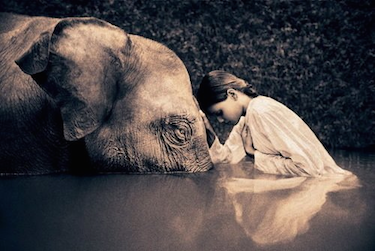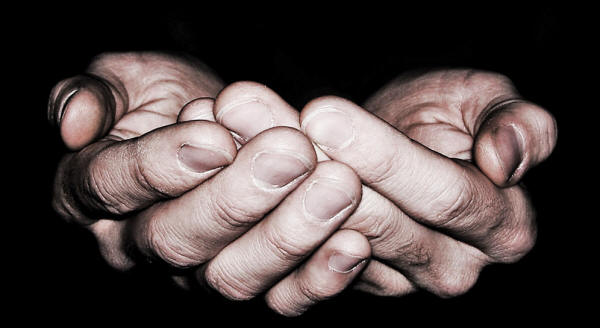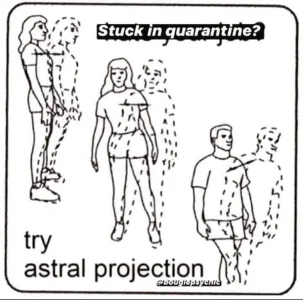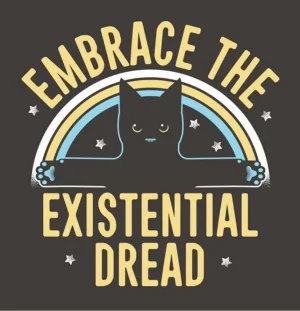You are using an out of date browser. It may not display this or other websites correctly.
You should upgrade or use an alternative browser.
You should upgrade or use an alternative browser.
Merkabah
- Thread starter Skarekrow
- Start date
More options
Who Replied?Impact Character
folding paper cranes ⭐
- MBTI
- inconcrete
- Enneagram
- 964
Illustrations with minimalistic animation are so delightful! The ones you picked especially.~
Impact Character
folding paper cranes ⭐
- MBTI
- inconcrete
- Enneagram
- 964
Arrogance exists within us all.
This is something I recognize and continue to work on within myself.
For those who may have noticed me overstep my bounds in this regard from time to time, bless you and thank you for showing kindness and patience in return.
We truly are all works in progress!
Love to you all - stay safe out there in this upside-down world!
:<3white::<3white::<3white:
How Humility Will Make You the Greatest Person Ever
It's so hard to be humble.
Here are three tips for taming your ego.
BY VICKI ZAKRZEWSKI

In light of the upcoming presidential race and the increase in narcissism amongst our youth, I think it’s safe to say that, as a society, we could use a little more humility.
Our culture places so much value on external accomplishments, appearance, and self-aggrandizement—all things that are ephemeral at best—that even a small display of this quiet virtue can make one feel like a drowning man coming up for air.
Yet why can it be so challenging for us to express humility?
Is it because we often misinterpret its active demonstration to be a sign of weakness, when in actuality it is an indication of tremendous inner strength?
The answers may be found in what scientists are discovering about this quality—one so deeply revered by all spiritual traditions that many consider it to be the mother of all virtues.
Why is humility good?
When I meet someone who radiates humility, my shoulders relax, my heart beats a little more quietly, and something inside me lets go.
Why?
Because I know that I’m being fully seen, heard, and accepted for who I am, warts and all—a precious and rare gift that allows our protective walls to come down.
Truly humble people are able to offer this kind of gift to us because they see and accept their own strengths and limitations without defensiveness or judgment—a core dimension, according to researchers, of humility, and one that cultivates a powerful compassion for humanity.
This kind of self-acceptance emerges from grounding one’s worth in our intrinsic value as human beings rather than things such as six-figure salaries or the body of a movie star or climbing the corporate ladder or the number of friends on Facebook.
Instead, humble people place high value on more meaningful things that benefit others, such as noble qualities.
They also see life as a school, recognizing that while none of us is perfect, we can, without negatively impacting our self-esteem, work on our limitations by being open to new ideas, advice, and criticism.
This ability alone cultivates an awe-inspiring inner strength, the most powerful example of which is Gandhi, whose Autobiography is a journey of humbling self-dissection.
He once famously said, “I claim to be a simple individual liable to err like any other fellow mortal. I own, however, that I have humility enough to confess my errors and to retrace my steps.”
If Gandhi is an example of what a humble leader can accomplish, then society serves to benefit from this kind of governance.
Consider what researchers of the “quiet ego”—a construct similar to humility—suggest happens when we gain control of our ego: we become less likely to act aggressively, manipulate others, express dishonesty, and destroy resources.
Instead, we take responsibility for and correct our mistakes, listen to others’ ideas, and keep our abilities in humble perspective.
Who wouldn’t want that kind of leadership for our country—and the world?
But the benefits of humility do not extend to just our leaders.
Nascent research suggests that this lovely quality is good for us individually and for our relationships.
For example, humble people handle stress more effectively and report higher levels of physical and mental well-being.
They also show greater generosity, helpfulness, and gratitude—all things that can only serve to draw us closer to others.
Three tips for cultivating humility
Given what scientists have discovered about humility, it’s evident that cultivating this quality is not for the faint-hearted, nor does it appear overnight.
Yet it would seem that one of the great rewards of humility is an inner freedom from having to protect those parts that we try to hide from ourselves and others.
In other words, we develop a quiet, understanding, and compassionate heart.
Here are some scientifically-based ways to start.
1. Embrace your humanness
For many, when we fail at something that is important to us—a job or a relationship, for example—our self-esteem plummets because we tied our self-worth to those things.
All of a sudden, we become bad or unworthy people, and it can be a long road to recovery.
Not so for people with humility.
As stated earlier, their ability to withstand failure or criticism comes from their sense of intrinsic value of being human rather than outer means.
So when they fail at a task or don’t live up to expectations, it doesn’t mean that there is something wrong with them.
It just means that they are human like the rest of us.
Scientists suggest that this intrinsic value stems from secure attachment, or the healthy emotional bond formed with close others, usually our childhood caregivers.
Having the experience of unconditional acceptance and love, particularly when we’re young, can serve as a buffer against the effects of criticism or failure.
Unfortunately, many of us did not experience secure attachment when we were children.
One study found that a whopping 40 percent of adults are not securely attached, but thankfully this does not mean we are doomed.
We can heal through healthy adult relationships, such as friends, romantic partners, or even with a higher power.
This recent GGSC article suggests some ways.
2. Practice mindfulness and self-compassion
In recent years, mindfulness and self-compassion have been linked to greater psychological resilience and emotional well-being.
And I can’t imagine developing humility without them.
According to scientists, humble people have an accurate picture of themselves—both their faults and their gifts—which helps them to see what might need changing within.
Mindfulness grows our self-awareness by giving us permission to stop and notice our thoughts and emotions without judgment (if we judge what’s going on inside us, we paint a distorted view of ourselves).
The more we become aware of our inner lives, the easier it is to see where unhealthy beliefs and actions might be limiting us.
Noticing and then accepting those parts of ourselves that are wreaking havoc and that require us to change calls for self-compassion, or treating oneself with kindness and understanding.
Once we accept what needs changing, then we can start the process of transformation.
I love the saying by a wise sage, “If you are in a dark room, don’t beat the darkness with a stick. Rather, turn on the light.”
In other words, just gently and patiently replace a negative thought or action with a positive one and over time, we may not even recognize the person we once were.
3. Express gratitude
Saying “thank you” means that we recognize the gifts that come into our lives and, as a result, acknowledge the value of other people.
Very simply, gratitude can make us less self-focused and more focused on those around us—a hallmark of humble people.
Indeed, a recent study found that gratitude and humility are mutually reinforcing. Expressing gratitude can induce humility in us, and humble people have a greater capacity for conveying gratitude.
Both gratitude letters and gratitude diaries were used in this study—easy to perform practices that are described in greater detail on the GGSC’s Greater Good in Action website.
Perhaps the key to humility is seeing life as a journey towards cultivating those qualities that bring out the best in ourselves and others and make this world a better place.
And this journey is not just for the average person, but one that many of our greatest leaders have embarked upon.
To close with the words of one who knew humility, Nelson Mandela:
"As I have said, the first thing is to be honest with yourself. You can never have an impact on society if you have not changed yourself…Great peacemakers are all people of integrity, of honesty, and humility."
- Spend time listening to others
A key quality of humbleness is to value others and enable them to be heard. Spending time listening to others, and drawing out their feelings and values, enabling them to express themselves, is a very powerful way to start to understand this.
It is important to remember that you are not trying to solve their problems, or answer them: just listen and respond to them as a fellow-human.
- Practice mindfulness, and focus on the present
A key part of mindfulness is accepting what is, rather than judging and commenting on it. An important element of humility is accepting yourself with all your faults, rather than judging yourself for your shortcomings. That doesn’t mean you should not strive to improve, but positively, rather than berating yourself for your negative qualities.
- Be grateful for what you have
In other words, take the time to ‘count your blessings’, and be thankful for them. It is easy to get sucked into a negative spiral of wanting more, whether in yourself, or externally. Taking time to stop, and remember what you have to be grateful for, is a good way to cultivate a more humble, and positive, frame of mind.
- Ask for help when you need it
There is, as many of us will ruefully recognize, a form of pride that lies in being able to solve our own problems. Humility, therefore, lies in recognizing when we need help, and being able to ask for it appropriately. You may find it helpful to read about Transactional Analysis to identify how to ask for help without losing a sense of equality.
Transactional Analysis is based on the understanding that everyone has three parts, Parent, Adult and Child.
The Parent is the learned element, and is basically the unfiltered recordings of the first five years of your life.
It can be thought of as what your parents taught you, consciously or unconsciously, in that time.
It may include safety information (“Don’t run across the road!”), beliefs (religious or ‘life’ systems), and rules for life.
The Child is the ‘felt experience’, or the remembered responses of the ‘little person’ to the adult world, again in the first five years.
In general, the Child is about emotion and feelings, as these are the predominant response in small children.
The Adult is the thinking or reasoning element who examines the Parent and Child data and decides whether
When the Parent is involved, there are some give-aways in the language used, with common phrases being ‘never’, ‘always’, ‘should’, and ‘ought’, especially when these are used without considering whether the position is sensible.
There may also be gestures such as finger-wagging and head-shaking.
The Child often manifests in a very emotional response.
Verbal clues include use of childish words and phrases such as ‘I wish’, ‘gonna’, ‘don’t want’, and ‘won’t’.
The Adult manifests through fact-finding.
The basic language of the Adult is a series of questions: who, what, why, where, how?
- Seek feedback from others on a regular basis
This is, perhaps, particularly important for leaders, but we can all gain from hearing what others think of us. Take time to ask others to provide feedback, anonymously if necessary, and make it clear that you welcome their opinions. Listen to the feedback openly and then be grateful.
- Review your actions against the language of pride
Pride and arrogance, which also cover smugness, snobbery, and vanity, are unpleasant words. It can sometimes be hard to avoid feeling a bit proud of ourselves, or vain, or even snobbish. It is often quite pleasant to feel like that, for example, if we have done something good, and everyone is praising us. However, we tend not to call these feelings by name, because the words themselves carry negative connotations.
To cultivate humility, review your feelings against the words: ask yourself ‘was that snobbish?’, ‘was I being a bit vain then?’, and be honest about the answers. Recognizing and naming these feelings for what they are is a good step towards humility.
Good read, thanks a bunch as always. Hope everything is well yonder~!
(TA is pretty awsome.)
Skarekrow
~~DEVIL~~
- MBTI
- Ni-INFJ-A
- Enneagram
- Warlock
for me it took a complete failure of life as I knew it to begin the process of examining life. I found so much to work on. . and here I am, still a work in progress, but standing on firm ground for the first time in a long, long time
I wanted to give more of a response than I did the other day to what you said.
I've felt very similarly in my own life lately.
It took me several years after becoming disabled and dealing with the constant pain before I had my own breakthrough of sorts.
So I can relate to what you said on a certain level, we are all in unique life circumstances of course - I don't proclaim to have it any more figured out than the next person...only in regards to myself.
It really was a shift in how much I decided to take charge of my own situation as opposed to letting what will come to me come.
Not fighting the flow of the river, but gently directing myself away from the rocks long before I get to them, lol.
Isn't is interesting how we as humans seem to need adversity to really allow us to grow and bloom?
Not everyone, but a fair majority I would suppose.
Some is probably just getting older and having more life under the belt, maturing, etc.
But it is really putting out the effort to make positive changes that seems to start the ball rolling.
It was very easy to stay in the role of victim of circumstance...I had even gotten comfortable in a strange way there.
Recognizing that I was doing this to myself was the best thing that ever happened.
But yes, it took the dark night of my soul to find the light.
We are all a work in progress...I certainly don't have it all figured out by any stretch of the imagination...but I am hopeful now.
Hope you continue on your pathway toward contentment...have a peaceful day my friend!
:<3white::<3white:
Illustrations with minimalistic animation are so delightful! The ones you picked especially.~
:<3white::<3white: Thanks!!
Good read, thanks a bunch as always. Hope everything is well yonder~!
(TA is pretty awsome.)
TA is pretty awesome isn't it...I can't help but think that that dream I had with the lightening and thunder and rain had some kind of relation to TA in some way as well.
It's funny how much I've let my Parent-self dictate things for so long, while ignoring my child.
My adult was great at my job doing surgery, but back home took a back-seat frequently too.
I've been re-exploring my child-self more lately...if anything, just trying to remember how it felt to sit up in my favorite climbing tree.
How that felt...how it felt to lay on the carpet in a patch of sunshine and be content.
Thank you as always for your kind and sweet words of support and caring!
Much love to you and all!
Have a peaceful day too!
:<3white::<3white::<3white:
Skarekrow
~~DEVIL~~
- MBTI
- Ni-INFJ-A
- Enneagram
- Warlock
Short but effective...
How to Clear Your Head
Do you dwell on the negative and let moments of joy just pass you by?
Discover how Pixar's Pete Docter got out of his head and savored the good in his life.
How to Be Kinder to Yourself
When you're caring so much for other people, how do you deal with your own stress?
Psychiatrist Elizabeth Guinto tries a practice to be kinder to herself.
How to Make a Good Apology
Learn the four steps to making an effective apology,
with comedian Jolenta Greenberg of the By the Book podcast.
How to Clear Your Head
Do you dwell on the negative and let moments of joy just pass you by?
Discover how Pixar's Pete Docter got out of his head and savored the good in his life.
How to Be Kinder to Yourself
When you're caring so much for other people, how do you deal with your own stress?
Psychiatrist Elizabeth Guinto tries a practice to be kinder to herself.
How to Make a Good Apology
Learn the four steps to making an effective apology,
with comedian Jolenta Greenberg of the By the Book podcast.
- MBTI
- INFJ
- Enneagram
- 954 so/sx
Short but effective...
How to Clear Your Head
Do you dwell on the negative and let moments of joy just pass you by?
Discover how Pixar's Pete Docter got out of his head and savored the good in his life.
How to Be Kinder to Yourself
When you're caring so much for other people, how do you deal with your own stress?
Psychiatrist Elizabeth Guinto tries a practice to be kinder to herself.
How to Make a Good Apology
Learn the four steps to making an effective apology,
with comedian Jolenta Greenberg of the By the Book podcast.
These are great! The second one really reminds me of @slant 's videos actually
- MBTI
- INFJ
- Enneagram
- 954 so/sx
Illustrations with minimalistic animation are so delightful! The ones you picked especially.~
I agree, these are awesome!
Skarekrow
~~DEVIL~~
- MBTI
- Ni-INFJ-A
- Enneagram
- Warlock
Have you ever noticed how we say that beliefs are something you "hold"?
According to new research (Cognitive and Interpersonal Features of Intellectual Humility) out of Duke University, the grip you keep on your ideas shapes the way you approach the world.
How tightly (or not) you cling to your own opinions is called "intellectual humility" (IH), and it could have a big effect on the decisions you make.
People high in IH are less committed to being right about everything and care more about what new information is out in the world, while people low in IH want to believe what they already think.
If you agree with the statement,
"I question my own opinions, positions, and viewpoints because they could be wrong" - used in the Personality and Social Psychology Bulletin study - then you may score highly on IH.
Call it informational sensitivity:
"People differ to the degree that they have antennae on in regard to evidence quality," lead author Mark Leary, professor of psychology and neuroscience, tell us.
The ramifications are broad, Mark Leary says, since needing to be right all the time and ignoring evidence that conflicts with your opinion can create all sorts of problems, whether in relationships or business or politics.
Here's one politically relevant example from the paper:
Participants read an anecdote about a politician changing his mind after he learned more an issue, and those low in IH were more likely to say that he was flip-flopping than (wisely) re-evaluating his opinion based on new evidence.
To Leary, the results speak poorly of the American ideal of "sticking to your guns," since that's the opposite of the open- and eager-mindedness that IH characterizes.
Self-worth and identity issues might be in the mix, too.
"You almost get the sense that intellectually humble people keep their ego out of their intellectual decisions," Leary says.
With IH, it's less about being right than seeing what's right.
Troublingly, other research (Powerful People Think Differently about Their Thoughts) indicates that powerful people take their thoughts more seriously, suggesting that IH might go down the higher you climb in social structures.
IH may arise from other, more fundamental factors of personality, too.
In one experiment, Leary found that people high in IH also had high openness to experience, a core personality trait measuring curiosity, and need for cognition, or how much you enjoy thinking.
Leary reasons that IH arises from those drives working together, since desiring new ideas and chewing them over has a way of getting you accustomed to changing your mind.
As indicated in another experiment, IH also depends your ability spot facts.
To assess this, the researchers recruited 400 people online for a critical thinking task evaluating the merits of flossing.
After reporting how regularly they flossed, participants read one of two essays advocating the practice - one relied on strong, scientific arguments citing dental experts, the other on weak, anecdotal arguments from ordinary people.
The results:
People high in IH rated the strong argument much more highly, and more hopefully for dental (and social!) progress, the low frequency flossers were indeed more likely to change their minds after reading the stronger essay - so long as they were high in IH.
The question I really wanted to ask Leary was outside the scope of the study, namely:
- Is there a way to get people to be higher in IH?
- Is there a magic wand of humility that you can wave?
When he's teaching this stuff, he likes to check his students' intellectual privilege with a couple of well-placed questions.
"Probabilistically," he likes to say, "wouldn't it be strange if your views were always the right ones? Wouldn't it be odd if everything you believe is true?"
John K
Donor
- MBTI
- INFJ
- Enneagram
- 5W4 549
This is a really good article. I get the impression that most people think of their lives a bit like they think of their car - point and go. When they find it doesn't get to where they want, then of course it's because something is wrong with the car, or with the way they drive it, or with the roads. That may be a sort of useful image if it's used carefully, but it's full of traps and illusions. I like to think it's more like a river, and controlling it is like controlling a river.I pose this question here now - as an INFJ do you feel you have more of an internal locus of control or external?
Skarekrow
~~DEVIL~~
- MBTI
- Ni-INFJ-A
- Enneagram
- Warlock
Thanks, I thought so too.This is a really good article. I get the impression that most people think of their lives a bit like they think of their car - point and go. When they find it doesn't get to where they want, then of course it's because something is wrong with the car, or with the way they drive it, or with the roads. That may be a sort of useful image if it's used carefully, but it's full of traps and illusions. I like to think it's more like a river, and controlling it is like controlling a river.
That's a very good analogy yes!
There are those who don't seem to mind if they plow other people down and run over them with said car either, lol.
Just as there are those who would gladly use you as a flotation device in the river only to drown you!
Even a dam in a river will break with time.
Better to save your strength to avoid the rocks instead of swimming against the current all the time.
Unfortunately, it's often trial and error at the expense of others before many figure it out.
Even those with the best intentions and sense of life direction.
Cheers!
:<3white:
Skarekrow
~~DEVIL~~
- MBTI
- Ni-INFJ-A
- Enneagram
- Warlock
@Wyote
Thought you would appreciate this one!
:<3white:
Thought you would appreciate this one!
:<3white:
How Ghosts Nearly Ruined the Foo Fighters’ 10th Album
“When we walked into the house in Encino, I knew the vibes were definitely off,” Dave Grohl says
https://www.rollingstone.com/music/music-news/foo-fighters-new-album-ghosts-971615/
.
“When we walked into the house in Encino, I knew the vibes were definitely off,” Dave Grohl says
https://www.rollingstone.com/music/music-news/foo-fighters-new-album-ghosts-971615/
.
- MBTI
- INFJ
- Enneagram
- 954 so/sx
@Wyote
Thought you would appreciate this one!
:<3white:
How Ghosts Nearly Ruined the Foo Fighters’ 10th Album
“When we walked into the house in Encino, I knew the vibes were definitely off,” Dave Grohl says
https://www.rollingstone.com/music/music-news/foo-fighters-new-album-ghosts-971615/
.
"I knew the vibes were definitely off but the sound was fucking on"
Hahaha can't wait for this album, I bet there'll be some weird shit on it
- MBTI
- INFJ
- Enneagram
- 954 so/sx
This is a really good article. I get the impression that most people think of their lives a bit like they think of their car - point and go. When they find it doesn't get to where they want, then of course it's because something is wrong with the car, or with the way they drive it, or with the roads. That may be a sort of useful image if it's used carefully, but it's full of traps and illusions. I like to think it's more like a river, and controlling it is like controlling a river.
I had an interesting discussion with a friend yesterday about the brain, somewhat related to this maybe.
You know when you almost drop something or make a loud noise or cause some kind of harm, but then everything turns out fine?
It's funny how the brain reacts in that moment, trying to predict the future outcome and then failing at it. It's a very specific kind of feeling the brain has in that moment.
Like when the river is suddenly blocked off or slowed down, perhaps.
John K
Donor
- MBTI
- INFJ
- Enneagram
- 5W4 549
It's like watching the flow causing a standing wave around a feature such as a sand bank or a group of rocks. But then there is a disturbance - maybe a large branch gets caught there for a few moments and the wave is gone, replaced by chaotic eddies, but when the branch frees up and floats away downstream the standing wave is back as though it had never vanished.I had an interesting discussion with a friend yesterday about the brain, somewhat related to this maybe.
You know when you almost drop something or make a loud noise or cause some kind of harm, but then everything turns out fine?
It's funny how the brain reacts in that moment, trying to predict the future outcome and then failing at it. It's a very specific kind of feeling the brain has in that moment.
Like when the river is suddenly blocked off or slowed down, perhaps.
JennyDaniella
Stargazer
- MBTI
- INFJ
- Enneagram
- 925
- MBTI
- INFJ
- Enneagram
- 954 so/sx
It's like watching the flow causing a standing wave around a feature such as a sand bank or a group of rocks. But then there is a disturbance - maybe a large branch gets caught there for a few moments and the wave is gone, replaced by chaotic eddies, but when the branch frees up and floats away downstream the standing wave is back as though it had never vanished.
I knew you'd come up with the perfect analogy
John K
Donor
- MBTI
- INFJ
- Enneagram
- 5W4 549
Sorry (... I'm not really...), got carried away with the imagesI knew you'd come up with the perfect analogy











